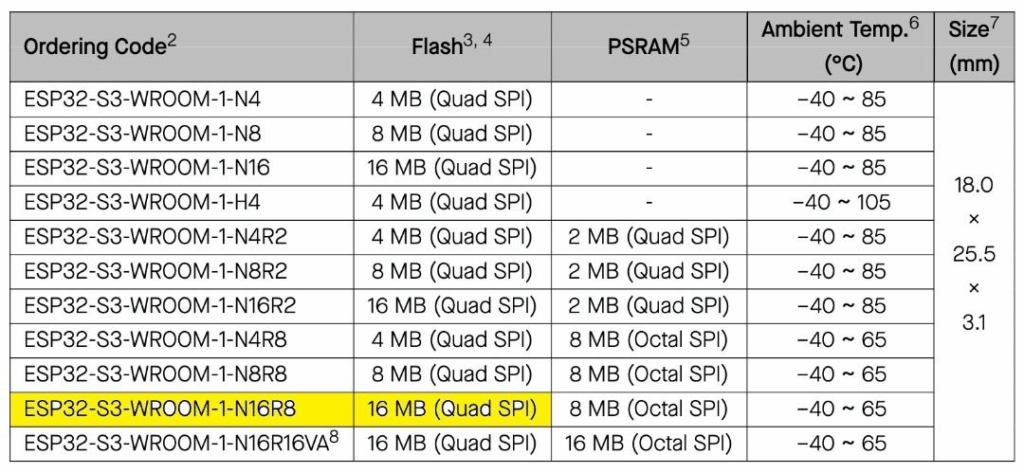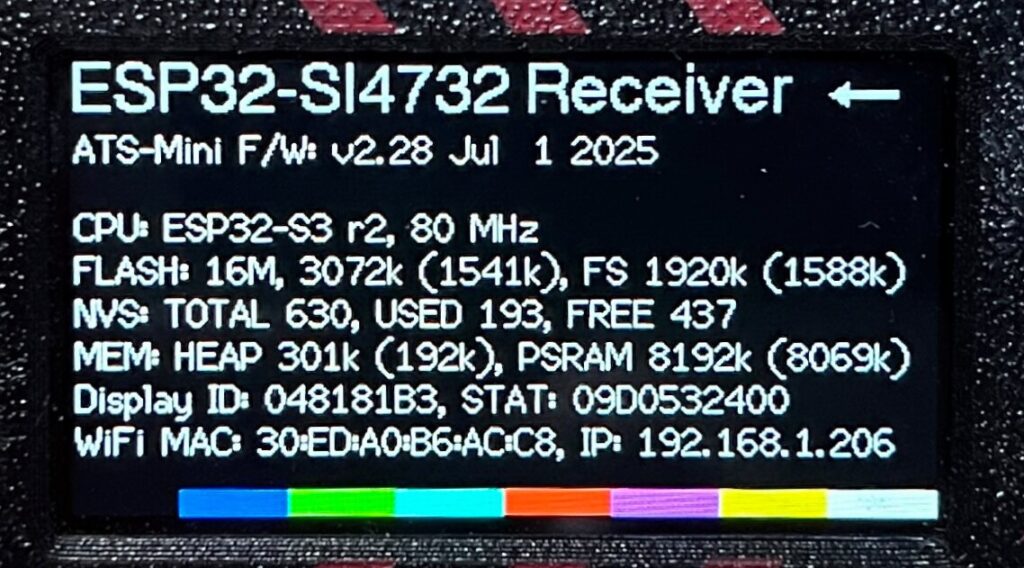A firmware update was released for the ATS Mini earlier today (July 1, 2025) and I quickly grabbed it and installed it on my V3 and V1 models. The latest version is always found on GitHub here.
There are two installation files, one with OSPI in the zip filename and one with QSPI. For the commercial AST Mini products, the OSPI firmware is the correct one. One of the features of V2.28 is support for PSRAM and this is the reason for two versions. Copilot says: 🤖”PSRAM stands for Pseudo-Static RAM. It’s a type of external memory that behaves like SRAM (fast, byte-addressable) but is built using DRAM internally, making it cheaper and denser.”
If you’re up for opening your unit, this table is helpful:

The item in the left column should match the component on the circuit board, and then the PRSAM type is either Quad (use QSPI) or Octal (use OSPI). Mine says N16R8.
For a technical description of which firmware to install see: Firmware Files.
There are multiple ways to update the ATS Mini firmware, but I’ve always used the Flash Download Tool that I’m comfortable with.
Fixes
The one complaint I’ve had about the ATS Mini, and one I posted as an issue on GitHub, is that the 200 kHz step on the VHF (FM) band forced even multiple of 1o0 kHz, so that the FM channels tuned were 90.0, 90.2, 90.4 rather than 90.1, 90,3, 90.5 where the actual channels are in North America. The reply I got from the developers was “Fixed in main.” I wasn’t sure what “main” was and when the fix would be available, but now I know: it’s fixed in 2.28.
One interesting change is described as: Much better seek sensitivity. The other was a fix to “Fix loud clicks when changing bands/modes on the PCB version without the mute circuit.” I haven’t observed the problem.
Process
I’ve flashed the firmware enough times that I don’t need to refer to the documentation. Updating two radios takes maybe 10 minutes not hurrying (longer if I hurry). Of course, I already have the firmware download tool on the hard drive.

Turning the encoder knob advances to page 3, which shows a nonzero value for PSRAM.



Hola. Esta actualización mantiene la CB activa (banda ciudadana) o la hace desaparecer? Porque he visto que algunas versiones no permiten la sintonía en esa banda, una vez que se actualiza la versión original.
Tengo instalada ahora la versión 3.33 del firmware. Tiene una banda de CB separada en la lista de bandas.
Have you seen the fork with the advanced webui?
https://github.com/barchiesi/ats-mini/releases
I had not. Looks interesting — that little radio just keeps surprising.
is it possible to get an update to stop my radio from losing battery power when switched off
Fixing the battery drain issue requires modifying the circuit board unfortunately. My article below has links to suggested solutions:
https://www.blogordie.com/2025/06/ats-mini-v3-power-drain/